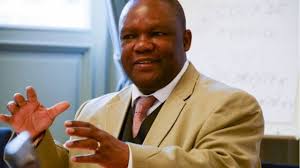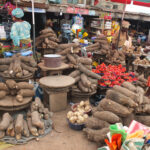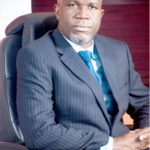Two related recent political developments attracted my attention: the 70th anniversary of the Northern Elements Progressive Union (NEPU) and the invitation of Dr Obadiah Mailafiya by the Department of State Services (DSS).
The former is celebrated for asking the correct political question while the latter was embarrassed for asking a wrong political question.
In Southern Kaduna IDP camps, Atyab, Fulani, Hausa shed tears
Kaduna records highest infections as Nigeria’s COVID-19 deaths near 1000
I think it was Bill Warren who asked the right question: who is the immediate enemy?
For the NEPU, Malam Aminu Kano – the face of the party – argued that their struggle was against the oppression of Talakawa (ordinary people) by what he described as “Anglo-Fulani aristocracy.”
This is very revolutionary because the party was formed 70 years ago by eight people who had limited formal education.
In fact, Aminu Kano, a diploma holder, was convinced to join them largely to provide intellectual leadership to the party.
It is impressive that they did not identify people from southern part of the country as the immediate enemy even though Southerners dominated the public service and the economy, especially in a commercial centre like Kano.
Indeed, asking the correct political question, based on which they emphasized principles rather than ethnicity was a blessing to the party.
According to Tanko Yakasai, the first meeting of the NEPU, “was called on August 8, 1950 by one Yoruba man from Kabba called Bello Ijumu “ (Daily Trust, August 16, 2020).
Ijumu was not only the first secretary of the party but also a passionate and committed member.
This was acknowledged by the document of the party: “by far the most zealous and devouted member of this steering group was Bello Ijumu, a northern Yoruba from Mopa division of Kabba province…
“A more dogged, hard driving and tireless crusader than Bello Ijumu was hard to find.
“He was unstoppable even in the face of the hardest challenges.”
In a brilliant article published in Daily Trust of August 4, 2020, Professor Jibrin Ibrahim, reproduced the manifesto of the NEPU.
He also argued that the manifesto was influenced by the Communist Manifesto and that “during the Webinar, a lot of discussion was on the NEPU ideology, so well expressed in its Sawaba (Freedom) Declaration and many participants were asking for copies …
“It starts with a call for radical change, provides the analysis that justified the change, identifies the core political objective, gives the reason why it must be secured by the Talakawa themselves and the centrality of class struggle in the conduct of politics.”
Specifically, article 2 of the Sawaba Declaration stated that “there is today in our society an antagonism of interest, manifesting itself as a class struggle between the members of the vicious cycle of Native Administration on the one hand and the ordinary Talakawa on the other hand.”
Now compare the NEPU ideology with the perspective of Middle Belt intellectuals like Dr Obadiah Mailafiya, who in the viral video for which the DSS invited him, proudly stated that he has a PhD from Oxford University and people like him do not “talk nonsense.”
Really?
Well, those who said that whoever has to introduce him or herself as a diplomat is not one, are also not talking nonsense.
In an article published by Premium Times on August 8, 2015, Dr Chris Ngwodo, provided an insight into the perspective of Middle Belt Movement when he referred to the “emergence of a militant neo-Christian political identity in the Middle Belt which thrives on Islamaphobic anti-Hausa-Fulani populism”.
The implication of the above perspective is that the Hausa-Fulani Muslim is the immediate enemy.
And the danger is that if you are not Hausa-Fulani Muslim, you are a victim of oppression, even if you are part of the ruling class.
Two examples from an article by Professor Olatunji Dare, published in The Nation online of February 4, 2020.
In his analysis of Professor Jerry Gana, a staunch advocate of Middle Belt politics, Dare argued: “He always kept a low profile anyway in his many manifestations as Professor of Geography, Senator, director of the agency for food and rural development, (DFRII), Chief of the agency for social mobilization, (MAMSER), minister of agriculture and natural resources, minister of information and culture, minister of information and national orientation, minister of co-operation and integration in Africa and the several runs for president.
“These appointments encompassed the era of military President Ibrahim Babangida, the interim administration of the deluded Ernest Shonekan, the brutal regime of Sani Abacha and Olusegun Obasanjo’s two terms.”
The analysis on the second example, General Jeremiah Useni, a distinguished son of the Middle Belt from Plateau State is more interesting. Useni went not only for power but also for wealth.
This is what Professor Dare wrote on Useni: “Minister of transportation and aviation, military governor of the old Bendel State, minister for (Abuja) Federal Capital Territory and member of senate… his acquisitions confiscated by the Federal Government, apart from the 4billion Naira reportedly recovered from one of his homes, N2b of it in foreign currency, included a terminal in Jos from where he operated a transport service with a fleet of 20 buses; controlling shares in a bank, two shopping malls in Abuja, 40 lock-up stalls in Garki and Wuse districts of Abuja, more than 70 undeveloped plots in Abuja, more than 30 houses in Langtang and Abuja, and 43 personal cars”.
Interestingly, whatever crimes these people may have committed, they are forgiven because they are from the Middle Belt.
They are not the immediate enemy.
The immediate enemy is the Hausa-Fulani Muslim, even if he is a peasant who finds it difficult to feed his family.
Some people in the Middle Belt argue that they were enslaved and oppressed by the Northern aristocracy.
But who was not?
Hausa, Fulani or Nupe?
Alhaji Shehu Shagari, former president, revealed that a younger sister to his father was captured and sold into slavery.
As a president, he succeeded in tracing her to the Republic of Mali, brought her back home in Shagari town, but she left after few weeks because she was established in Mali with children and more at home with their culture.
People in the coastal areas of Nigeria raided hinterland especially Igbo areas, captured people and sold them as slaves to the Europeans.
This inhuman trade lasted for over a century.
Will the Igbos and other ethnic groups of the hinterland declare war on the ethnic groups of the areas who captured and sold their people to the Europeans?
Does it make sense to declare war on the Europeans because some Europeans enslaved and dehumanized Africans for centuries?
Should we not emulate Nelson Mandela who after 27 years in prison, which cost him many things, including his marriage, came out and said that he had forgiven everybody and pushed an agenda for the opening of a new chapter of freedom and equal opportunity to all in South Africa?
Is this not the way of Christ?
Does it make sense for somebody in Plateau or Benue State to ignore his local oppressors who steal billions from their wealth and fight somebody in Zamfara who he considers an immediate enemy simply because he is Hausa-Fulani Muslim?
It was refreshing watching Pope Francis on television last week praying for “the people of Northern Nigeria”. Not just the Christians of Northern Nigeria.
It is an irony of life that most great men became great despite the envy and vicious attacks by their kinsmen but were helped by people outside their ethnic group.
Sir Ahmadu Bello Sardauna, the premier of Northern Region, was one of them.
Who sent Chief Obafemi Awolowo to prison and who released him from the prison?
The lesson here is that our humanity should always come first and that the best strategy to promote peace and national development in Nigeria is to stand for justice at all times, no matter who is involved.
The people of Dapchi in Yobe State have set an example when they stood by the parents of Leah Sharibu who is detained by insurgents, despite the difference in religion between the people of the town and the family of Sharibu.
The father and mother of Sharibu had to express their profound appreciation to them.
We should build on this momentum of solidarity, rather than waste valuable time on hate speeches.
We should discontinue allowing our intellectuals to descending from on-high down so low.
It would be very sad.

 Join Daily Trust WhatsApp Community For Quick Access To News and Happenings Around You.
Join Daily Trust WhatsApp Community For Quick Access To News and Happenings Around You.


